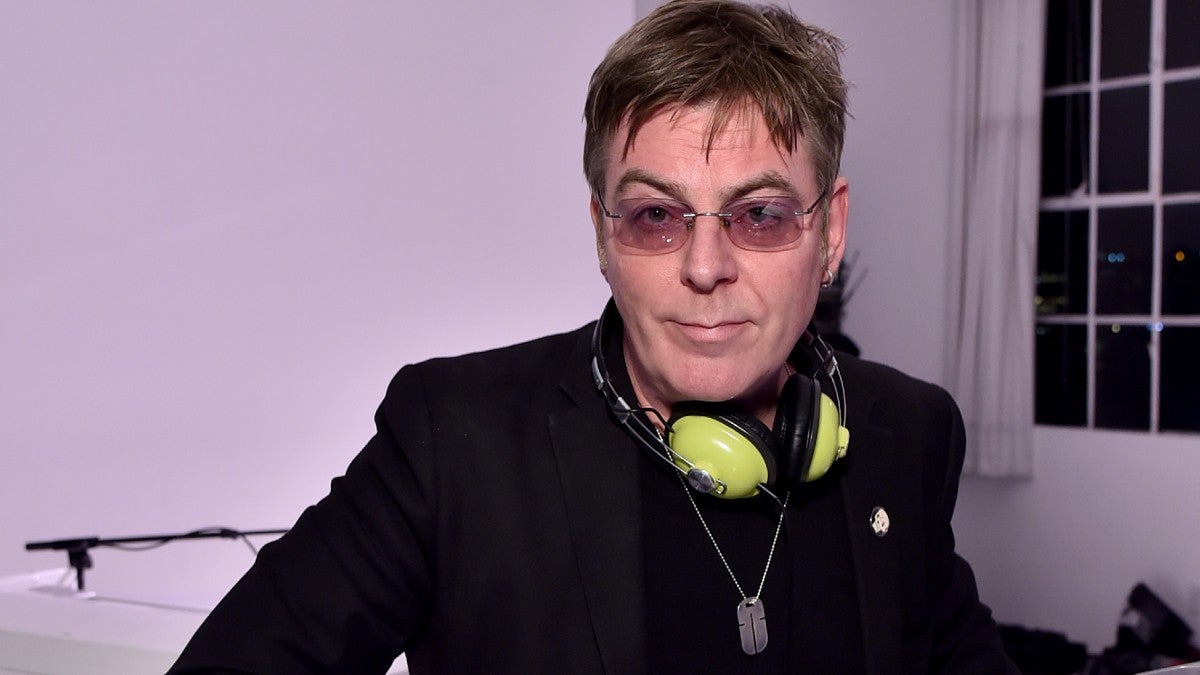
Andy Rourke, the bass player who provided the muscle and drive behind the darkly poetic musings of the Smiths, one of the most influential bands of the 1980s, died on Friday in Manhattan. He was 59.
A representative said he died of pancreatic cancer at Memorial Sloan Kettering Center.
While Mr. Rourke — along with the band’s drummer, Mike Joyce — received a tiny share of the accolades (and revenues), his sinewy bass lines provided both heft and melodicism behind Morrissey’s lachrymose vocals, which bounced between elegiac and funereal, and Johnny Marr’s intricate, layered guitar work, which could be almost symphonic in its complexity.
“The nature of the music that we were playing in the Smiths meant that the sound needed a bit more of a kick,” Mr. Rourke said in a 2019 interview with Bass Player magazine. “And because it’s me,” he added, “every time I do something, I do it big.”
Mr. Rourke’s playing, influenced by Paul McCartney and John Entwistle of the Who, was always “habitually unsung,” David Cavanagh, an Irish journalist, wrote in 1993, but it was also “incontrovertibly top drawer.”
Discerning listeners understood Mr. Rourke’s value. Morrissey once said that Mr. Rourke was good enough to have been in Elvis Presley’s band. “He didn’t ever know his own power, and nothing that he played had been played by someone else,” Morrissey wrote in a tribute on his website after Mr. Rourke’s death.
Mr. Rourke’s nimble, often effervescent bass lines were often foregrounded in landmark songs like “This Charming Man,” “Heaven Knows I’m Miserable Now” and “Cemetery Gates,” all of which transformed the Smiths into a cult act in the United States and a chart-topping group in their home country.
Andrew Michael Rourke was born in Manchester, England, on Jan. 17, 1964. He met Mr. Marr at school in Manchester in 1975.
“We were best friends, going everywhere together,” Mr. Marr wrote in a recent Instagram post, adding, “I soon came to realise that my mate was one of those rare people that absolutely no one doesn’t like.”
The Smiths formed in Manchester in 1982. The group had a couple of bassists before Mr. Marr brought in his childhood friend.
In a 2012 interview with The Guardian, Mr. Rourke recalled playing his first show with the band in a tiny gay club. The Smiths always “rehearsed to death,” he said, so it was not surprising when they quickly soared in popularity.
As they rose to prominence, the four Smiths were inseparable. “We were a gang,” he told Mojo. “A very tight band of brothers. When we were at our peak, nobody could penetrate that.” Within two years, the Smiths had their first Top 10 hit in Britain with “Heaven Knows I’m Miserable Now.”
But success brought problems, including a heroin habit that Mr. Rourke developed. “You start getting a bunch of money and you don’t know what to do,” he recalled in a 2011 interview. “You start spending it on drugs.”
In 1986, Morrissey fired Mr. Rourke, reportedly via postcard, because of his drug use. But he soon rejoined the band.
The Smiths broke up for good in 1987 after releasing four albums. Two years later, Mr. Rourke and Mr. Joyce, the drummer, began legal proceedings against their former bandmates, claiming that they had been equal partners and should have been paid a bigger split of the royalties. (They had been given only 10 percent.)
Mr. Rourke eventually dropped his case after being offered 83,000 pounds (about $100,000). But Mr. Joyce went to court and a judge found in his favor, saying that Morrissey should pay him compensation of around a million pounds, according to news reports at the time.
As late as 2007, Mr. Rourke told the BBC that the Smiths’ breakup “still smarts a bit.” Still, not long after the split, he laid down bass tracks for solo singles by Morrissey like “Interesting Drug” (1989) and “Last of the Famous International Playboys” (1990).
Post-Smiths, he also played on albums by Sinead O’Connor and the Pretenders and toured with Badly Drawn Boy. In 2009, Mr. Rourke moved to New York, where he performed at clubs with the D.J. Olé Koretsky in a duo called Jetlag, which evolved into a band called D.A.R.K. when they enlisted Dolores O’Riordan of the Cranberries.
Information on survivors was not immediately available.
Long after his Smiths days, Mr. Rourke was asked about the origins of his melodic style. “It was just my love of bass playing,” he said.
“If I wasn’t eating or in the bath,” he added, “I had a bass in my hand.”













